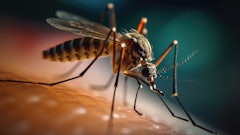The USDA announced last week it awarded nearly $10 million to a consortium of academic, industry and government organizations led by Colorado State University and their partners to fund research that will attempt to use insect-killed trees in the Rockies as a sustainable feedstock for bioenergy. The award, provided under the Agriculture and Food Research Initiative, is part of USDA's effort to develop modern solutions for climate challenges in agriculture and natural resource management.
"Infestations of pine and spruce bark beetles have impacted over 42 million acres of U.S. forests since 1996, and a changing climate threatens to expand the threat from bark beetle on our forest lands," said Agriculture Secretary Tom Vilsack. "As we take steps to fight the bark beetle, this innovative research will help take the biomass that results from bark beetle infestation and create clean, renewable energy that holds potential for job creation and promises a cleaner future for America."
Specifically, the team will explore recent advances in scalable thermochemical conversion technologies, which enable the production of advanced liquid biofuel and co-products on-site using a prototype pyrolysis system created by Cool Planet Energy Systems, based out of Greenwood Village, Colorado. The company's prototype pyrolysis system can be tailored to the amount of feedstock available and thus can be deployed in close proximity to stands of beetle-killed timber, which leads to significantly lower costs related to wood harvest and transportation. Their distributed scalable biorefinery approach is a key element in making the use of insect-damaged trees as feedstock plausible. To read more, click HERE.



















